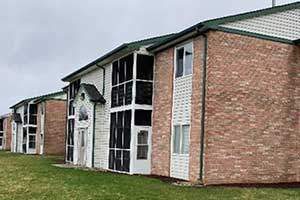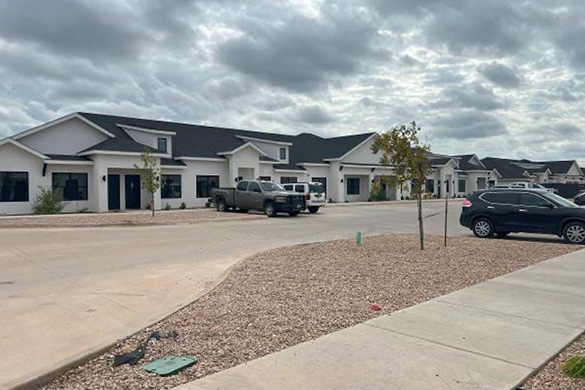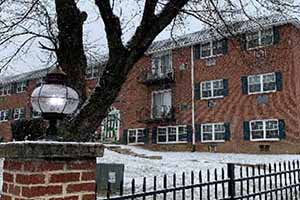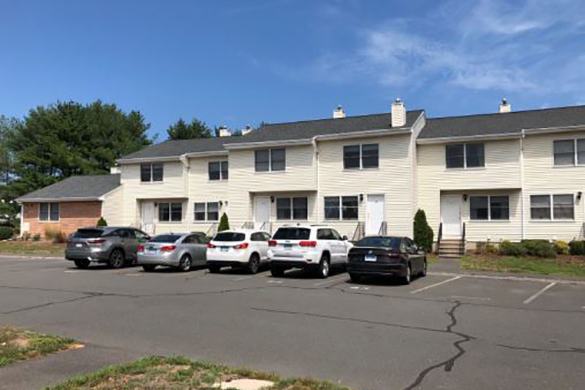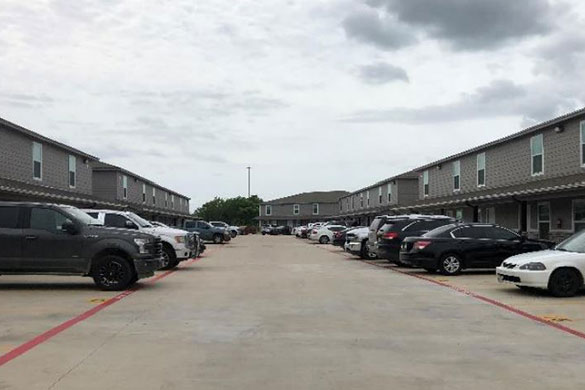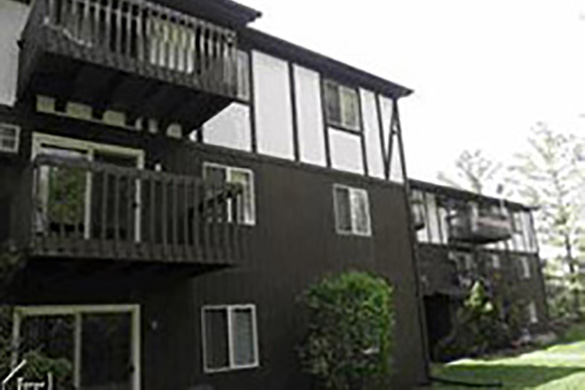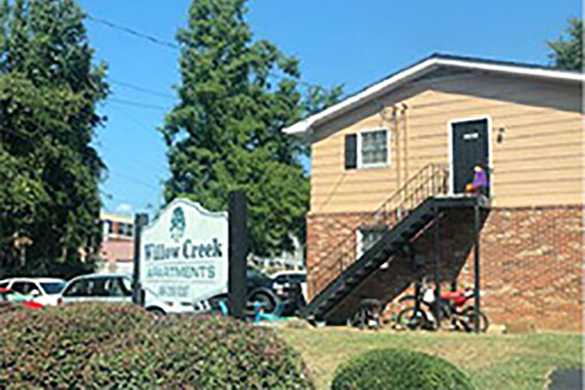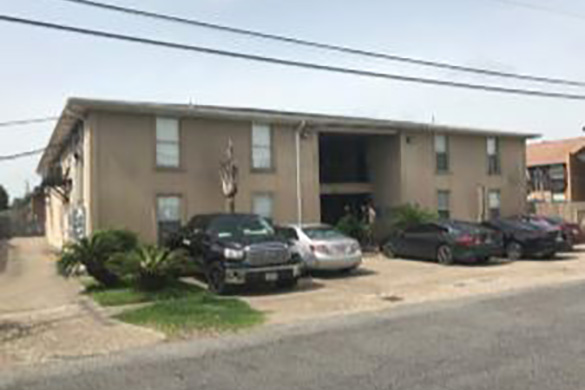District of Columbia Apartment Building Loans
At Select Commercial, we specialize in District of Columbia apartment building loans and a wide range of multifamily financing, offering competitive rates and tailored solutions for loans starting at $1,500,000. Whether you're financing an apartment complex or seeking a multifamily loan for an apartment building, our expertise in District of Columbia multifamily investments is unmatched. For other commercial real estate opportunities, explore our District of Columbia commercial mortgages page. To see a comprehensive overview of all our loan products and rates available nationwide, visit our commercial mortgage rates page. Explore our insights below on the 2025 District of Columbia Multifamily Loan Market Overview.
District of Columbia Apartmewnt Loan Rates - Updated 8/18/25
| District of Columbia Multifamily Loans Over $6 Million | Free Loan Quote | ||
|---|---|---|---|
| Loan Type | Rate* | LTV | |
| Multifamily 5 Yr Fixed | 5.23% | Up to 80% | |
| Multifamily 7 Yr Fixed | 5.33% | Up to 80% | |
| Multifamily 10 Yr Fixed | 5.43% | Up to 80% | |
| District of Columbia Multifamily Loans Under $6 Million | Free Loan Quote | ||
|---|---|---|---|
| Loan Type | Rate* | LTV | |
| Multifamily 5 Yr Fixed | 5.69% | Up to 80% | |
| Multifamily 7 Yr Fixed | 5.79% | Up to 80% | |
| Multifamily 10 Yr Fixed | 5.89% | Up to 80% | |
District of Columbia Multifamily Loan Benefits
District of Columbia Apartment Loan rates start as low as 5.23% (as of August 18th, 2025)
• A commercial mortgage broker with over 30 years of lending experience
• No upfront application or processing fees
• Simplified application process
• Up to 80% LTV on multifamily financing
• Terms and amortizations up to 30 years
• Multifamily loans for purchase and refinance, including cash-out
• 24 hour written pre-approvals with no cost and no obligation
Our Reviews
2025 District of Columbia Multifamily Loan Market Overview
The multifamily loan market is entering 2025 with a strong foundation despite some economic uncertainty. GDP growth in 2024 remained steady at around 2.2% to 2.4%, a level that supports continued investment in real estate without exacerbating inflation concerns. Loan originations, which had fallen significantly in 2023, showed signs of recovery in 2024 as capital re-entered the market.
Multifamily financing remains a critical tool for investors, with a significant portion of real estate capital still coming from banks. Compared to other global markets, where banks contribute up to 80% of real estate investment funds, the U.S. maintains a more diversified capital base, with only 38% of funding originating from banks. This diversity continues to support District of Columbia multifamily lending and apartment loan availability.
Property Sector Outlook: Multifamily Performance
Across commercial real estate, performance expectations for 2025 remain optimistic. Surveys suggest that overall commercial real estate returns will increase from 6.6% in 2024 to 7.6% in 2025. The multifamily sector, despite short-term oversupply in certain markets, is expected to perform well due to continued demand outstripping supply.
Although a surge in apartment construction in recent years has led to increased vacancies in select submarkets, this is expected to be a temporary adjustment. The U.S. continues to face a significant housing shortage, which will help absorb the new supply and drive long-term stability. The balance between supply and demand remains a key consideration for investors exploring District of Columbia apartment loan opportunities.
District of Columbia Multifamily Loan Demand and Rent Growth
The multifamily market demonstrated resilience in 2024, with the delivery of 530,000 new units alongside a 75% increase in demand over the previous year. Despite new inventory, vacancy rates remained relatively stable at around 6.5% to 7%.
A sharp decline in new construction starts is expected to impact the market positively in 2025. District of Columbia multifamily loan availability will continue to drive financing solutions for new developments, refinancing, and value-add opportunities. Investors seeking apartment loans should monitor trends in rent growth, which, although below historical averages in 2024, is anticipated to improve in 2025.
Regional Trends in Multifamily Lending
Certain markets will outperform others based on supply constraints and economic resilience. The Midwest, which saw limited new development in 2024, is projected to experience strong rent growth in cities like Cleveland, Detroit, Cincinnati, and Omaha.
The Sunbelt, previously a hotspot for oversupply, is seeing a slowdown in construction, which may lead to quicker market stabilization. Cities like Austin and Nashville are expected to recover faster than other markets due to sustained population growth and employment opportunities. Meanwhile, the West Coast, particularly the Bay Area, is poised for renewed interest as job growth in tech and innovation sectors increases rental demand.
HUD Updates and Multifamily Loan Opportunities
HUD has adjusted several key financing parameters to increase access to multifamily loans. Notably, loan-to-value (LTV) and loan-to-cost (LTC) limits have increased for both affordable and market-rate properties. For affordable housing developments using Low-Income Housing Tax Credits (LIHTC), LTV/LTC ratios have risen from 87% to 90%, while market-rate properties have seen an increase from 85% to 87%.
Debt service coverage ratios (DSCR) have also been adjusted to make financing more accessible. These changes make HUD-backed District of Columbia multifamily financing an increasingly attractive option for investors and developers looking to secure long-term apartment loan solutions.
Multifamily Financing and Interest Rate Trends
Interest rates remain a significant factor influencing District of Columbia multifamily loan decisions. The Federal Reserve began easing rates in late 2024, with projections for additional cuts in 2025. However, long-term rates remain volatile due to inflationary concerns and fiscal policy uncertainties. Investors should anticipate fluctuations in financing costs and structure their multifamily loan strategies accordingly.
Despite interest rate movements, strong rental demand and supply adjustments make multifamily financing an attractive sector for investment. Select Commercial, a leader in multifamily lending, continues to provide tailored apartment loan solutions to help investors navigate the evolving market landscape.
Conclusion: Multifamily Lending Outlook for 2025
As 2025 unfolds, the District of Columbia multifamily loan market will remain dynamic, shaped by economic trends, supply and demand shifts, and evolving interest rates. The slowdown in new construction, combined with sustained demand for rental housing, points to strong fundamentals for the sector.
Select Commercial specializes in District of Columbia multifamily financing, offering competitive loan products that support investment, development, and refinancing strategies. With deep expertise in apartment loan solutions, Select Commercial is positioned to help investors capitalize on the opportunities ahead in the multifamily sector.
Your Trusted District of Columbia Lender Source for Large Multifamily Properties Over $10 Million
Select Commercial Funding LLC specializes in providing exceptional mortgage brokerage services for large multifamily properties and high-value apartment complexes in District of Columbia. As a top commercial mortgage broker, our expertise extends to multifamily real estate financing, ensuring that investors receive the best terms and rates for their substantial investments. With our deep industry knowledge and commitment to excellence, we facilitate seamless financing for large balance multifamily properties, including loans for $10 million and up. Through our correspondent relationships with Freddie Mac, Fannie Mae, HUD, CMBS, life companies, and other multifamily real estate lenders, we can secure lower rates and higher leverage for our clients. Unlike banks and credit unions, we collaborate with a wide range of lenders to find the one best aligned with your unique scenario, ensuring you receive the most favorable rates and terms. We finance large balance multifamily loans nationwide across all asset classes. Our team’s extensive experience with large multifamily loans helps ensure that loans are funded quickly and at the lowest possible rates. We are dedicated to being the best multifamily mortgage brokers for large properties, providing expert services for high-value apartment complexes.
Tailored Solutions for High-Value District of Columbia Multifamily Real Estate Financing
At Select Commercial, we understand the unique challenges and opportunities involved in high-value multifamily real estate financing. Our customized loan programs are designed to meet the specific needs of large-scale and institutional investors, offering competitive rates and flexible terms on multifamily properties nationwide. With LTV’s up to 80% and low market rates, we provide our clients with some of the best financing terms available. Whether you are seeking financing for luxury District of Columbia apartment complex mortgages or large balance multifamily loans over $10 million, our team provides the strategic support you need to achieve your investment goals. Recognized as top multifamily mortgage brokers for high-value properties, we ensure you receive tailored solutions for prime multifamily properties. By leveraging our strong relationships with a variety of lending institutions, we secure some of the lowest rate multifamily and apartment loans for our clients, making us your go-to partner for large balance multifamily financing.
What’s going on with District of Columbia multifamily loan rates in early 2025?
The Federal Reserve’s Federal Open Markets Committee cut the federal funds rate by 50 basis points at its September 2024, meeting and another 25 basis points each at its November and December 2024 meetings. These were the first rate cuts since March 2020, when the Fed began a long series of rate hikes to curb the high rate of inflation. The Fed’s decisions show that they believe that inflation is under control and moving into the 2% range that the Fed has set as its goal. The Federal Reserve took these actions to prevent further declines in the labor market. In early 2025, the Fed hinted that the pace of further rate cuts would slow in 2025 and hinted that there might be two further cuts this year. These rate cuts, along with potential 2025 rate cuts, may create positive investor demand for multifamily real estate, and may provide aid for multifamily loan customers, as well as consumers in general. We must caution, however, that the Federal Reserve cuts affect short term interest rates directly and long-term rates only indirectly. The Prime Rate, which is a short-term rate, dropped from 8.50% to 7.50% with the Fed’s 2024 actions. However, most multifamily loan rates are based on the 5-, 7-, or 10-year treasury rates, and not the Prime Rate. We have seen these long-term treasury rates actually rise since the Fed cut short term rates! On September 18th, the 10-year treasury was roughly 3.70%. By the end of January 2025 this rate had jumped to over 4.50%. Investors are still concerned about future inflation and are adopting a wait and see attitude. As of August 18, 2025, the 5 year Treasury is at 3.852% and the 10 year Treasury is at 4.338%.
Everything You Need to Know About District of Columbia Multifamily Loan Rates in 2025
In order to determine District of Columbia multifamily loan rates, the first thing a multifamily loan lender needs to know is the type of property involved. Pricing on apartment loans will be lower than pricing for office properties, as apartments are a preferred investment in today’s market. After the lender understands the asset class involved, he will look at the deal metrics, which include, Loan to Value ratio (LTV), Debt Service Coverage Ratio (DSCR), and Debt Yield. Loans with a lower LTV and higher DSCR are considered less risky and will have better pricing. Another important deciding factor will be the location of the property. Top quality urban and suburban markets will be preferred over rural locations. One other major deciding factor will be the borrower’s experience, credit, net worth and liquidity. Strong borrowers with experience can expect the best pricing. The bottom line is that lenders need to understand the entire picture before quoting rates. As of August 18, 2025, you can check where multifamily loan rates currently start.
District of Columbia multifamily loan rates fluctuate based on current market indices. Most multifamily loans are priced over one of the following: US Treasury rate, the Wall Street Journal prime rate, or the Secured Overnight Financing Rate (SOFR). At the beginning of 2025, all of these rates are still elevated as a result of the Federal Reserve’s rate increases to curb inflation. As market rates gradually soften, multifamily loan rates will trend downwards. Many borrowers today are not locking in long term fixed rates but are opting for short term deals with lower prepayment penalties so that they can refinance when rates are more favorable.
It used to be fairly common to obtain 80% financing when rates were in the 3% and 4% range as the property’s cash flow could support higher levels of debt. In early 2025, with many rates in the 6% and 7% range, cash flow is severely restricted due to higher debt service costs. We often see maximum loan to value ratios in the 65% -70% range today as a result of these higher rates. As market rates ease, we would expect to see higher loan to value ratios and lower down payment requirements.
Many borrowers who are looking to refinance loans taken out five to ten years ago are experiencing several obstacles. First, since rates in early 2025 are higher, many loans are coming up cash-short (the new loan amount is not enough to pay off the maturing loan). These borrowers are often required to inject more cash into their deals or take on equity partners who are willing to invest. Today’s higher rates are causing mortgage payments which are often rising faster than the rental income increases will bear. Until rates ease, many borrowers will have experience difficulty refinancing their existing loans.
There are many reasons to work with a qualified and experienced District of Columbia multifamily loan broker. A mortgage broker will have a large database of capital sources, including agency lenders, insurance companies, CMBS lenders, national, regional and local banks, credit unions, debt funds, and private lenders to choose from. The broker will analyze your specific deal and determine which capital source will offer the best terms and the highest likelihood of success. The broker will professionally package your deal and negotiate the best terms for you.
Select Commercial has over 40 years of experience negotiating commercial and apartment loans for its clients. They have an extensive nationwide network of capital sources that are able to consider most loan scenarios. Many borrowers go to one or two of their local banks but don’t have the nationwide reach to approach other lenders that are often offering better rates and terms. Select Commercial spends the time understanding every client’s needs and will aim to negotiate all important loan terms, including, rate, term, amortization, prepayment penalty, recourse obligations, fees, reporting requirements, etc.
Lenders look at many items when deciding whether to approve an apartment or not. Some of the most important factors include LTV ratio, DSCR ratio, location of the property, property condition, occupancy, and borrower qualifications (experience, credit, net worth, and cash liquidity). While most of these factors are common sense and assumed by borrowers, the DSCR ratio might need some explanation. DSCR stands for Debt Service Coverage Ratio and is a ratio of the total net operating income divided by the annual debt service. Most lenders will require a DSCR of at least 1.25. This means that for every dollar of mortgage payment the property must net $1.25 in NOI. The reason that this is important is that while the maximum LTV might be 80%, the property needs to meet the debt service requirements. Due to higher market rates in 2025, most properties will only cash flow at 65% or 70%. It is important to calculate both LTV and DSCR when looking for a new loan.
District of Columbia lenders look for quality properties with high historical occupancy in excellent neighborhoods. Certain asset classes are preferred today based on current market conditions. Apartment properties and investment grade retail/warehouse/industrial properties with long leases are always in high demand. The risk of default with these properties is very low. Riskier deals include properties with short term leases, properties with high vacancy rates, and properties in remote or rural locations. Certain asset classes are not in favor today, such as general office properties. Ever since the work from home policies enacted during the Covid pandemic (many of which still remain in place) office properties have lagged the market.
Most new loans today will have rates that are higher than the rates which borrowers obtained 5 – 10 years ago. As these loans come up for renewal, many borrowers will be forced to refinance at today’s higher rates. Those borrowers might find that the new loan does not cash flow as well as their previous loan and might need to pay down the loan. Some borrowers who opt to refinance now might be looking to free up cash for other investments. Borrowers will need to decide if that makes sense in today’s market. We are not seeing a lot of discretionary refinancing right now due to higher market rates. Once rates soften, we expect to see a significant increase in discretionary refinancing.
Applying for a District of Columbia HUD multifamily loan is no different than applying for a regular loan with your bank. The lender will want to see a current rent roll showing at least 90% occupancy, a 12-month operating history showing the necessary cash flow to support the new loan, sufficient multifamily experience, good net worth and cash liquidity, and a good credit rating. Loans that do not meet HUD, Fannie Mae or Freddie Mac standards might still qualify for a bank or credit union loan. The lender will tell you upfront which lending options are best for you.
Applying for a District of Columbia Freddie Mac multifamily loan is no different than applying for a regular loan with your bank. The lender will want to see a current rent roll showing at least 90% occupancy, a 12-month operating history showing the necessary cash flow to support the new loan, sufficient multifamily experience, good net worth and cash liquidity, and a good credit rating. Loans that do not meet HUD, Fannie Mae or Freddie Mac standards might still qualify for a bank or credit union loan. The lender will tell you upfront which lending options are best for you.
Applying for a District of Columbia Fannie Mae multifamily loan is no different than applying for a regular loan with your bank. The lender will want to see a current rent roll showing at least 90% occupancy, a 12-month operating history showing the necessary cash flow to support the new loan, sufficient multifamily experience, good net worth and cash liquidity, and a good credit rating. Loans that do not meet HUD, Fannie Mae or Freddie Mac standards might still qualify for a bank or credit union loan. The lender will tell you upfront which lending options are best for you.
Most multifamily loan loans today are fixed for 5, 7, or 10 years and come with a 25–30 year amortization schedule. Loans can be recourse (personal guarantee) or non-recourse (no personal guarantee). multifamily loan loans typically carry prepayment penalties, whereas residential home loans usually do not. Specific terms will be determined by your lender’s underwriting team after your application is reviewed.
District of Columbia multifamily loan lenders typically lend up to 75–80% on an apartment purchase (down payment of 20–25% necessary). On other types of commercial property, multifamily loan lenders will typically lend up to 70–75% (down payment of 25–30% necessary). An exception is for owner-occupied business real estate, where owner/users may qualify for up to 90% LTV financing.
District of Columbia multifamily loan loans are evaluated differently from residential loans. Residential lenders base their decisions on the borrower’s income and creditworthiness, while commercial lenders focus on the property’s cash flow, operating statements, rent roll, and other financial metrics. Riskier commercial properties often lead to higher rates, while strong-performing properties can result in rates lower than residential loans.
The best commercial properties to invest in 2025 are those with high historical occupancy in strong locations. Apartment properties and investment-grade retail, warehouse, and industrial properties with long leases are preferred due to their low risk. Riskier properties include those with short-term leases, high vacancy rates, or located in rural areas. General office properties remain less desirable due to work-from-home trends.
Refinancing a multifamily loan involves determining whether the new loan meets your goals, such as lowering rates, reducing payments, or freeing up cash. Higher rates in 2025 can make refinancing challenging, with some borrowers needing to inject cash into deals. Once rates soften, refinancing may become more favorable for many property owners.
To apply for a multifamily loan, you’ll need to provide financial documentation, including a rent roll, operating statements, and borrower financials (net worth, liquidity, credit score). The lender evaluates both the property’s and borrower’s profiles to determine loan eligibility and pricing. A qualified mortgage broker can help streamline the process and identify the best options for you.
Latest Expert Insights from Stephen A. Sobin
Stephen A. Sobin, the president of Select Commercial Funding LLC, is a renowned expert in the field of multifamily financing. His insights and perspectives are regularly sought by leading industry publications. Here are his latest contributions that highlight his deep understanding of the multifamily financing landscape and his commitment to providing clear, insightful analysis on key industry issues.
Inflation’s Current Impact on Multifamily
In an article featured in Multi-Housing News, Stephen Sobin highlighted that commercial mortgage rates remain a key concern for real estate investors seeking financing. The last few years have seen a depressed real estate market due to higher inflation and interest rates. read the full article.
Will the July Jobs Report Pressure the Fed to Act?
In an article featured in Multi-Housing News, Stephen Sobin highlighted that the July Jobs Report showed the highest rate of unemployment in nearly three years. July’s employment showed an increase of only 114,000 new jobs, the second lowest total of 2024. The previous year’s monthly average was approximately 215,000 new jobs. read the full article.
Persistent Inflation and Its Effects on CRE
In an article featured in Multi-Housing News, Stephen Sobin highlighted that while inflation is still a challenge for the Federal Reserve, there are many positive signs for the commercial real estate industry. The headline Consumer Price Index rose 3.2 percent for the year ended Feb. 29, a figure 20 basis points lower than the Dec. 31, 2023, rate. read the full article.
Commercial Spotlight: Mid-Atlantic Region In this four-state powerhouse, smaller metros are thriving.
In a feature in Scotsman Guide, the Mid-Atlantic Region's real estate dynamics are explored, highlighting its resilience and growth amidst the pandemic.
Stephen Sobin of Select Commercial Funding LLC shared insights on the New York market's allure and the challenges buyers face. He noted the shift from primary urban areas to tertiary markets due to evolving preferences and financial conditions. For a deeper dive into Sobin's analysis, read the full article.
What the New Jobs Report Means for CRE
In an article titled "What the New Jobs Report Means for CRE" in Commercial Property Executive, Stephen Sobin shared his perspective on the latest jobs report and its implications for the Commercial Real Estate (CRE) sector. He highlighted the challenges posed by high interest rates and the prevailing uncertainty in the market. Sobin remarked, "Sellers aren’t selling, buyers aren’t buying... Everyone is waiting because no one knows what to expect." For a detailed analysis and more of Sobin's insights, read the full article.
Decoding "Junk Fees" in Rental Housing
In another latest contribution to Multi-Housing News, Sobin provided expert commentary in an article titled "What's Next for Junk Fees? The Industry Weighs In". He clarified the difference between legitimate fees collected for various third-party services and so-called "junk fees". Sobin emphasized the importance of borrowers understanding their rights in negotiating all loan terms and the obligation of lenders to disclose all fees.
Understanding the Impact of Federal Reserve's Decisions
In a recent article titled "How the Fed's Pause on Interest Rates Impacts Multifamily" published by Multi-Housing News, Sobin shared his expert insights on the Federal Reserve's decision to pause interest rate hikes. He accurately predicted that the Fed would not raise rates in June, citing recent bank failures and lingering concerns about a potential recession.
Stay tuned for more expert insights from Stephen A. Sobin on the evolving multifamily financing landscape.
Apartment Loan Types We Serve
If you are looking to purchase or refinance a Baltimore apartment building, don't hesitate to contact us. We arrange financing in the city of Baltimore for the following:
- Large urban high-rise multifamily buildings
- Suburban garden multifamilycomplexes
- Small multifamily buildings containing 5+ units
- Underlying cooperative multifamily building loans
- Portfolios of small multifamily properties and/or single-family rental properties
- Other multi-family and mixed-use properties
Apartment Loan Helpful Articles
How to Get the Best Rate on a Multifamily LoanHow to Buy an Apartment Building
Uncomplicated Underwriting
How to Invest in an Apartment Building
Are You Shopping for an Apartment Building Loan?
How To Get The Best Rates On An Apartment Refinance
How do we help our District of Columbia apartment loan clients get the best rate and terms?
Select Commercial has excellent District of Columbia apartment building loan products and options available for owners and purchasers of apartment properties throughout the state of District of Columbia. Whether you are looking for a small apartment building loan or are looking for apartment building financing for a complex with hundreds of units, we can help you find the optimal apartment building financing to meet your apartment building loan needs. While we lend across the entire continental US, we are able to give our best rates and loan programs to certain areas that we feel are strong markets. District of Columbia is one of the states that we consider to be a premium market for apartment building loans and we actively look to originate good quality loans here for our clients. We have a diverse array of many available loan products to help qualified DC borrowers looking to purchase or refinance an apartment property. We offer apartment loans with terms and amortizations up to 30 years, recourse and non-recourse, and many options for prepayment. We typically approve apartment building loans within 1 day and usually close within 45 days of application. Our clients love our simplified application process, 24-hour pre-approvals with no-cost and no-obligation, great rates and terms, fast closings and personalized service.
Recent Multifamily Loan Closings
Whether you are purchasing or refinancing, we have the right solutions available for your multifamily mortgage loans. We will entertain apartment loan requests of all sizes, beginning at $1,500,000. Get started with a Free Commercial Mortgage Loan Quote.
District of Columbia Apartment Building Financing
Select Commercial provides apartment building financing and District of Columbia commercial mortgages throughout the state of {District of Columbia including but not limited to the areas below.





